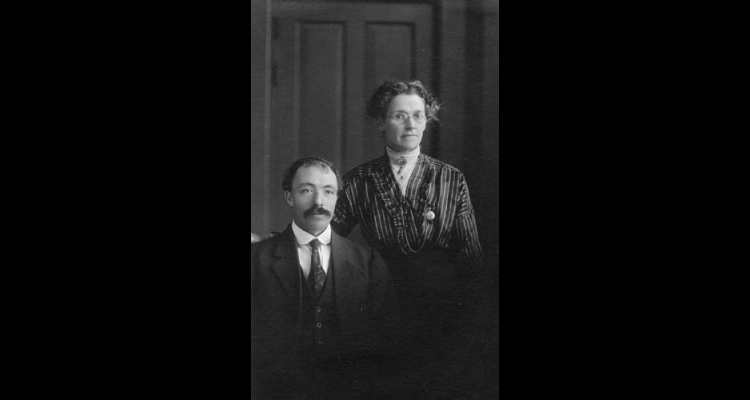Cornish Immigrants
Cornwall, England's western-most county, is one of six Celtic nations that include Ireland, Scotland, Wales, the Isle of Man, and France's Brittany, each sources of immigrants to Nevada. As early as the Bronze Age, Cornwall's tin mines won fame, but failure of Cornish mining in the 1830s inspired immigration to other centers of mineral production. About 100,000 Cornish left a county that had a population of almost 370,000 in 1861.
Because the Cornish immigrated to mining districts, they often by-passed the eastern United States. Initially, many Cornish settled in Wisconsin and Michigan. Later, they came further west to California, Nevada, and Colorado.
The Cornish, as Protestant speakers of English, could have blended in with the majority of native-born North Americans. Instead, they utilized their ethnicity and its implied expertise in mining to secure the best jobs. According to tradition, the Cornish were always looking for employment opportunities for friends and relatives. A folk explanation for their nickname, "Cousin Jacks," suggested that when asked if anyone could do a job in the mine, the answer was, "My Cousin Jack can."
People relied on the distinctive Celtic beginnings of many Cornish names to identify them. A nineteenth-century poem listed a few possibilities: "By Tre-, Lan-, Ros-, Car-, Pol-, and Pen-, you may know the most of Cornishmen." Thus, the names Trenoweth, Polglase, and Penrose, for example, had roots in Cornwall.
Cornish immigrants found Nevada a good place to work, but they avoided unreliable mining booms. Instead, the Cornish waited for districts to stabilize, delaying the inconvenience and expense of relocating until there was the promise of long-term employment. The Cornish could arrive late, and by virtue of their reputation, still command the best jobs. Although they are nearly absent in the 1860 census of the western Great Basin, over 1,000 Cornish immigrants appear in Nevada's 1870 census.
Pro-management Cornish were often antagonistic to labor-supporting Irish Catholics. In spite of this, the preference given to Cornish miners was clear when John Mackay and James Fair, Irish immigrants and supporters of Irish causes, hired Frank Osbiston, a Cornish immigrant, to serve as their superintendent of Virginia City's Hale and Norcross Mine. The importance of the Cornish miners inspired others to adopt their unique vocabulary and folklore: "Lode," for example, is a Cornish word for ore body and tommyknockers, spirits in the mines, originally came from Cornwall.
The Cornish played important roles in building mining districts, but they did not linger when mines failed. This is partly because Cornish women—Cousin Jennies—were less likely to immigrate than women from other British and Irish groups. Single Cornishmen were quick to move. Where others might be reluctant to leave after sinking roots, the Cornish drifted away, regarding the entire international mining frontier as home.
Although the Cornish were known as miners, Cornwall also had a productive maritime industry. In keeping with this, Cornish immigrant Captain Edmund Humkin commanded the Nevada, the Meteor, and the Tahoe, for decades the grandest ships of Lake Tahoe.
Article Locations
Related Articles
Further Reading
None at this time.






